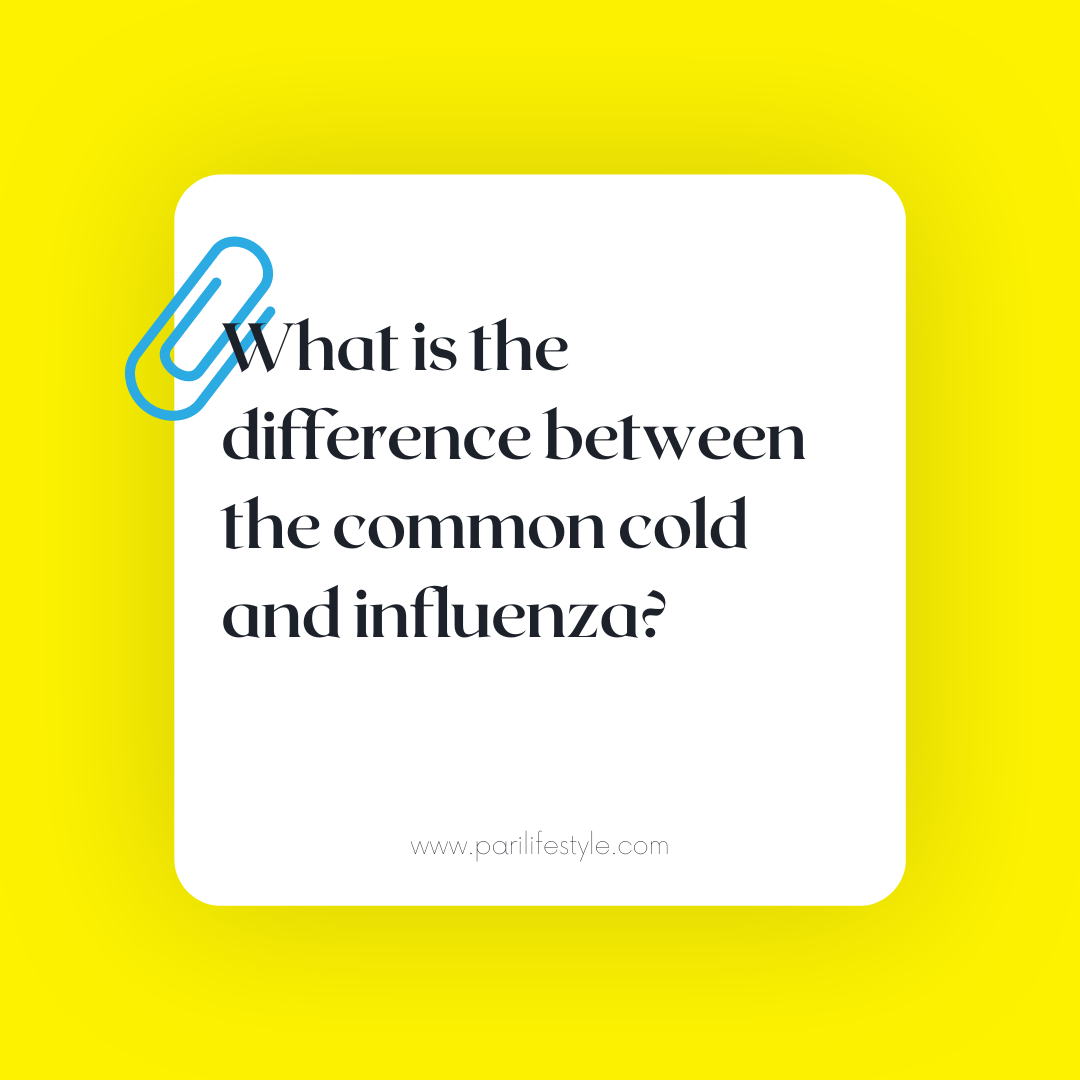Hello! Monsoon season is already knocking on the door in most of the states of our country. The smell of fresh rains on mud, the petrichor is heady. The joy of eating good food makes us happy. But, every joy of this season is laced with concern. Health concerns rise because our body is not accustomed to the sudden changes in the weather and temperature.
The atmosphere is laden with allergens or allergy-causing agents, the exposure to which can cause respiratory infections or even allergic responses. A change from high temperatures to lower ones or a sudden change from lower temperatures to higher ones causes metabolism changes. It affects the immunity of the body, causing the common cold.1
But wait, is it common cold or influenza?
Isn’t the common cold and flu the same? Even I used to believe that and I think that most of you can relate with me. But my perspective changed when I attended this live session on Facebook, where Dr. Sadanand S. Shetye, a neonatologist along with Dr. Mangesh Tiwaskar, a consultant physician and diabetologist spoke about the differences between the common cold and Influenza. It was one of the most important sessions that I have attended to date and got to learn about the difference between the two. So, in this post, I will be sharing my learning with you all.
Common Cold vs Influenza
Common cold and Influenza (flu) are both contagious respiratory illnesses making it difficult for us to differentiate between the two. A cold usually comes slowly starting with a runny/stuffy nose, sneezing, and sore throat whereas influenza comes quickly with fever, extreme tiredness, cough, and body ache. Influenza is typically worse than a cold and more likely to cause complications.2
What is the difference between the symptoms of influenza and cold?
(source: https://www.cdc.gov/flu/symptoms/coldflu.htm)
What precautions need to be taken to reduce the risk of influenza?
Hygiene is the key. Make sure to cover your nose and mouth when you cough or sneeze. Ensure to wash your hands with soap and water frequently. If you are not near water, you can use an alcohol-based sanitizer. Try to stay away from the people who are sick. Avoid touching your eyes, nose, or mouth. Vaccination is the single best way to prevent influenza and its complications.3
Are Influenza vaccines effective?
Annual influenza vaccination is recommended for all people aged 6 months and older. Vaccination is the best tool currently available to prevent influenza and reduce the risk of contracting influenza repeatedly. Vaccines become effective 14 days after vaccination and prevent around 40% – 60% of infections in healthy adults.4
How to ensure the care of the person affected with flu at home?
In case someone at home gets flu, ensure that they stay at home and take proper rest. Ensure adequate hydration. If the person affected is in the high-risk category (children below 5 or people with pre-existing health conditions), then please contact your doctor who may prescribe relevant medications. Caregivers should take proper precautions while caring for their loved ones. Caregivers should ensure to wear face masks, wash hands, etc.to avoid catching the infection.3
Your health is not an expense; it is an investment. It is important to adopt healthy habits to keep cold and flu germs at bay. Always make sure to get plenty of sleep, eat a balanced and healthy diet comprising of seasonal fruits and vegetables, exercise regularly, and manage your stress levels as well during the cold and flu season and beyond to #FightAgainstFlu.
References:
- https://www.healthshots.com/preventive-care/self-care/side-effects-of-season-change-on-health-and-tips-to-handle-it/
- https://www.cdc.gov/flu/symptoms/coldflu.htm
- https://www.mayoclinic.org/diseases-conditions/flu/symptoms-causes/syc-20351719
- https://www.cdc.gov/flu/vaccines-work/vaccineeffect.htm
Read this https://parilifestyle.com/suggestions-on-how-to-deal-with-difficult-teenagers/


One thought on “What is the difference between the common cold and influenza?”